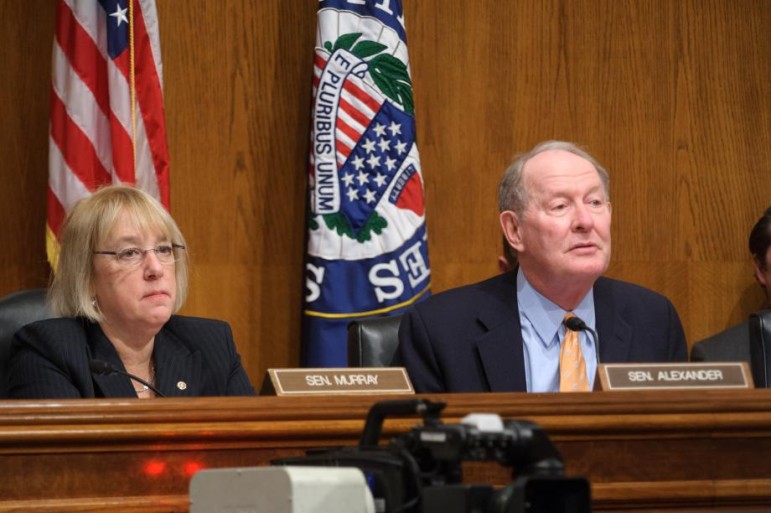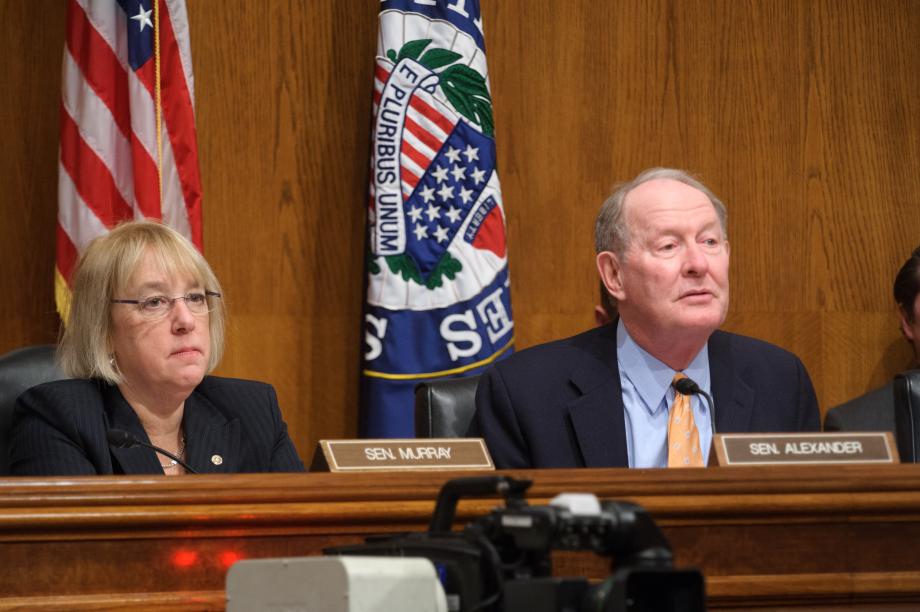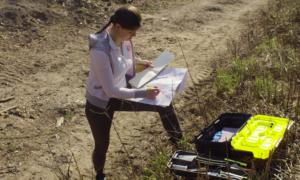
Committee on Health, Education, Labor and Pensions
Sen. Patricia Murray, D-Wash., and Sen. Lamar Alexander, R-Tenn., deliberate on the fate of after-school funding with other members of the Senate Health, Education, Labor and Pensions Committee.
As Congress raises its ax to No Child Left Behind, it could also slice away the 17-year program that serves 1.6 million children in after-school and summer programs.
Markup and discussion of a draft bill that makes sweeping education changes could begin as early as next week in the Senate Health, Education, Labor and Pensions Committee, chaired by Tennessee Republican Lamar Alexander. The markup process is expected to conclude by the end of February.
The Elementary and Secondary Education Act would shift funds away from the federal after-school grant program known as the 21st Century Community Learning Centers as well as scrap adequate yearly progress requirements for schools and change student assessment methods.
It would open up after-school funding for wider uses by sending it in block grants to state education departments.
The 21st Century program, based in the U.S. Department of Education, funded 11,040 schools and community after-school centers last year, according to Department figures. Many after-school centers involve partnerships with community organizations such as the YMCA and Boys and Girls Clubs.
A similar bill was introduced in the U.S. House of Representatives Tuesday by Rep. John Kline, R-Minn., and Rep. Todd Rokita, R-Ind.
“This bill is designed to restore educational control to its proper place and reduce the federal government’s intrusion …” Rokita said in a statement.
After-school advocates contend that money for after-school programs would be drained away for other purposes.
It’s a “nightmare,” said Irving Katz, president and CEO of the National Human Services Assembly, an association of nonprofits in the fields of health, human and community development, and human services.
“[The proposal] removes an asset that is there for children,” he said. There’s no other funding that exists at this level for after-school programs, he said.
“It’s been working well,” he said.
While philosophical differences over the role of federal government underlie language in both Senate and House bills, the 21st Century Community Learning Centers has long had support from both Democrats and Republicans.
“There’s been bipartisan support for a long time,” Katz said.






























